News from the Institute
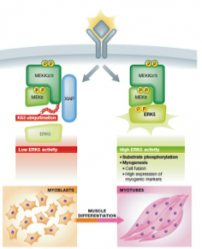
Mitogen activated protein kinases (MAPKs) are a class of highly conserved family of protein kinases that control fundamental cellular processes like cell survival, migration and differentiation. The group of Krishna Rajalingam from IBCII, now discovers a novel role for ubiquitination in the inactivation of MEKK2/3-MEK5-ERK5 signaling pathway, thus adding another layer of regulation of MAPKs. They identify that two members of the inhibitors of Apoptosis Proteins (IAPs) family, XIAP and cIAP1, directly bind and conjugate a unique type of ubiquitin chains to MEKK2 and MEKK3, which directly impairs the complex formation between MEK5 and ERK5 thus inactivating this signalling pathway. They further identify that XIAP negatively controls human myogenic differentiation by regulating the activation dynamics of ERK5-MAPK cascade. The observations by Takeda AN et al are now published in EMBOJ
... (read more)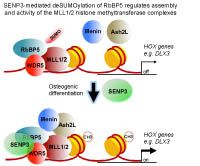
The group of Stefan Müller unraveled a novel facet of SUMO-regulated gene expression. They discovered that the SUMO-specific isopeptidase SENP3 is needed for proper activity of histone-modifying MLL1/2 complexes. Removal of SUMO2/3 from the MLL1/2 subunit RbBP5 is required for the activation of a subset of HOX genes, including the regulator of osteogenic differentiation DLX3. The importance of this pathway for cell differentiation was demonstrated in a human stem cell model. The paper by Nayak et al. was published online in Molecular Cell on June, 12.
... (read more)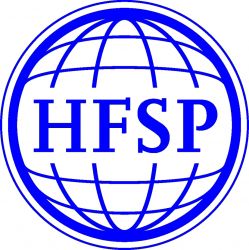
The International Human Frontier Science Program (HFSP) Organization announced this year's winners of the competition for one of the prestigious HFSP research grants. Amongst the awardees is the Dikic group, who together with the Sidhu group (Canada), the Komatsu group (Japan) and the Sander group (U.S.) will receive 1,35 M USD for the next 3 years. "This award considerably pushes autophagy research in Frankfurt, especially because it funds one of our most innovative projects. Within the next 3 years, we expect to gain a lot of knowledge about molecular targeting of the autophagy network", says Ivan Dikic, IBCII director.
... (read more)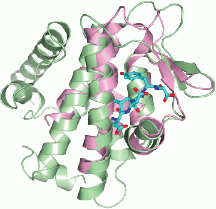
The groups of Ivan Dikic and Masato Akutsu have moved closer in understanding how a novel form of protein modification, the linear ubiquitination, controls central pathways of immunity and inflammation. In a collaborative effort, they showed that the two enzymes responsible for assembling and disassembling linear ubiquitin chains are contained in one complex. By structural analysis, they managed to decipher the molecular details of the interaction between these two key enzymes and were able to show how the opposing activities of the complex are controlled. Their results are published in the current edition of Molecular Cell online.
... (read more)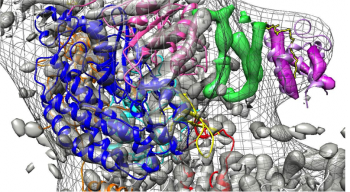
Complex I is the largest enzyme of the respiratory chain, a fundamental metabolic pathway operating to supply the cell with energy. Dysfunction of complex I causes numerous neuromuscular and neurodegenerative diseases in humans. Combining biochemical and structural evidence the Zickermann group now succeeded in shedding light on the essential role of accessory subunit NB4M (NDUFA6/LYRM6) for complex I function. The results are published in the current early edition of the journal PNAS (Angerer et al., doi: 10.1073/pnas.1322438111).
... (read more)